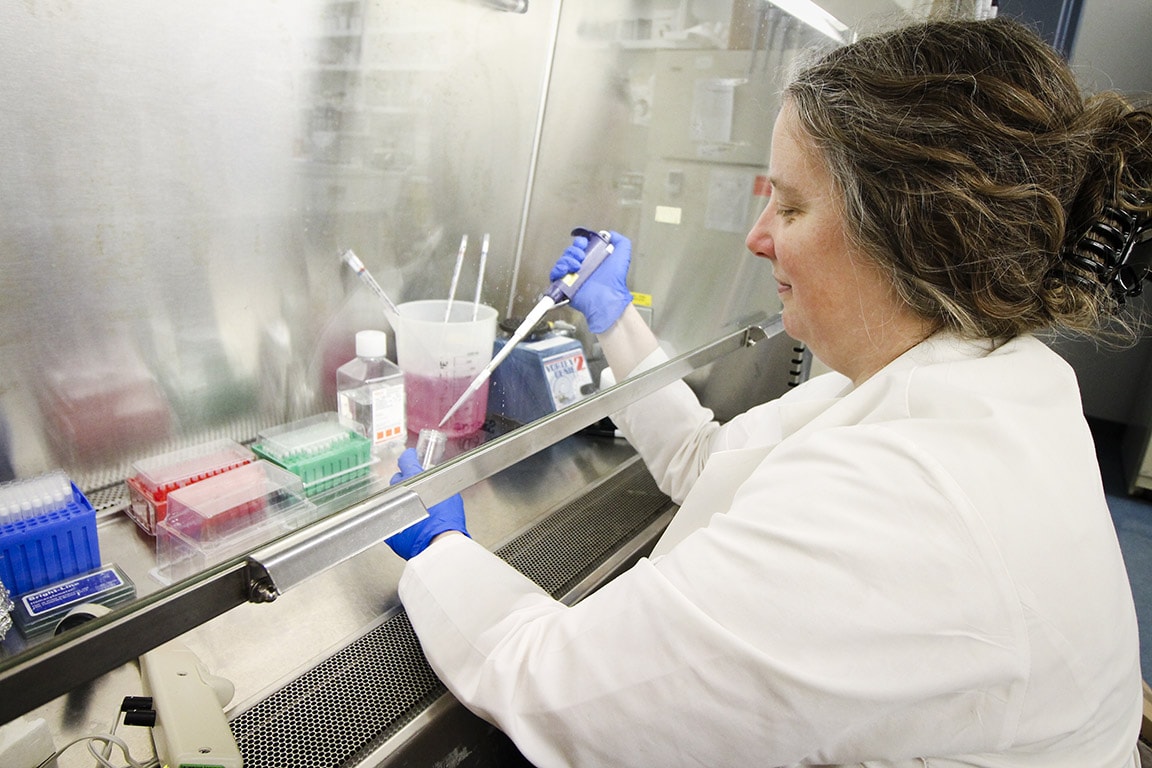SLU Researchers Begin Enrolling Participants in Chikungunya Vaccine Clinical Trial
Saint Louis University’s Center for Vaccine Development is studying an investigational vaccine for Chikungunya, a painful and debilitating disease that is spread by mosquitoes. The research is funded by Emergent Biosolutions.
Chikungunya virus is spread by Aedes mosquitoes. Concerned about recent outbreaks of Chikungunya in the Caribbean, Central, and South America, Emergent Biosolutions is developing a vaccine. There is no existing vaccine or treatment for Chikungunya.
A vaccine for Chikungunya is needed because the disease, transmitted by Aedes mosquitoes, is spreading rapidly, with multiple outbreaks occurring in the tropics in recent years, according to Sarah George, M.D., associate professor of infectious diseases at SLU and principal investigator for the clinical trial.
George will study whether the vaccine stimulates the body’s defense system to make antibodies to Chikungunya virus. Her study will study the safety of the vaccine as well as immune responses of groups of volunteers who are given the investigational vaccine.
The phase 3 clinical trial is being conducted at up to 50 sites in the U.S., including Saint Louis University. Researchers are recruiting around 75 healthy adolescents and adults between 12 and 60 years of age at each site for a total of 3150 for the study, which lasts 7 months.
Endemic in Africa, Asia, Europe, the Caribbean, and Central and South America, chikungunya can infect over 100,000 people annually, causing symptoms that include fever, painful and sometimes swollen joints, headache, rash, nausea, and muscle aches. Locally acquired cases occurred in Florida and Texas in 2013 and 2014.
Though most patients feel better within a week, the joint pain may persist for months in some people.
“Chikungunya can be a very unpleasant and painful disease,” George said. “It’s truly miserable, and we need a vaccine that can protect people.”
To learn more about vaccine research being conducted at Saint Louis University, call 314-977-6333 or email vaccine@slu.edu. For more information on this study, please visit the ClinicalTrials.gov website.
About Saint Louis University School of Medicine
Established in 1836, Saint Louis University School of Medicine has the distinction of awarding the first medical degree west of the Mississippi River. The school educates physicians and biomedical scientists, conducts medical research, and provides health care on a local, national and international level. Research at the school seeks new cures and treatments in five key areas: infectious disease, liver disease, cancer, heart/lung disease, and aging and brain disorders.


















